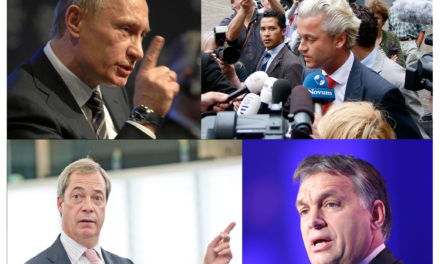As Obama began to disappear into the Capitol building following his second Inaugural Address, he paused. “I want to look one more time,” he said. He turned and gazed at the thousands upon thousands that had gathered on the National Mall. He looked at the nation that elected him.
President Obama’s Second Inaugural Address was very. . .different. As the world looked on, the President was bold about his very liberal beliefs, specific about his long term goals and stood in solidarity with those that elected him. Obama spoke as if he had left politics at the door. This was not 2008 Obama, glowing with pixie dust and a hope and change messages for a vague but promising future. This was not even 2012 Obama, playing the politics of the center-left, silent about some issues and shaky about others. No, this Obama, unfettered with the concerns of re-election made clear to the nation and to the world that his second term will unapologetically take up the mantle to close the American socio-economic gap, to deal with the threat of climate change and support the fight for gay rights.
Obama began his speech by linking our national present to our national past. He focused on the nation’s commitment to equality, rejecting the notion that America was founded to protect the “privilege of a few.” However, the President expressed that the United States must find new and better ways to achieve equality, rather than resting on an archaic system that surely leaves our society with many inadequacies. He declared that the U.S. must not leave behind the poor if we are to have success as a nation. Personally, I absolutely agree that there must be more opportunities for those who have less. Still, the President’s assertion of our national responsibility to the poor was striking. For so long, the United States has stressed the ideology of individualism with a side of equality and a dash of a social safety net. But the idea that our government must actively make a better way for those with less is truly remarkable, as it places the right to equal results on par with equal opportunity. Obama dismissed the idea that strong social programs make us “a nation of takers.” Instead, the President suggested that it is our duty as a nation to ensure that success is possible for those who start out with less, saying that America is true to its values “when a little girl born into the bleakest poverty knows that she has the same chance to succeed as anybody else because she is an American, she is free and she is equal, not just in the eyes of God but also in our own.”
Next, the President boldly addressed the reality of climate change and the need for our nation to respond to the threat it poses to the world. Obama challenged those who “deny science,” pointing at the “devastating impact of raging fires, and crippling drought, and more powerful storms.” Additionally, I believe this shows that the President understands that the U.S. needs to lead in the energy sector in a business sense, as well as a matter of our safety. Including climate change in his speech demonstrates the President’s commitment to our place in the future of energy, and our need to move away from polluting practices. During campaign season, Republican presidential candidate Mitt Romney would often use Obama’s energy investments as a point of contention. Thus, the President’s addition of climate change to his speech is pointed at those who question the means (or even the validity) of dealing with the world’s changing climate. Still, this was a daring, and an incredibly necessary portion of the President’s inaugural address.
Finally, the President stood strongly beside his lesbian, gay, bisexual and transgendered supporters and all who support equal marriage rights. He announced that “[our] journey is not complete until our gay brothers and sisters are treated like anyone else under the law, for if we are truly created equal, then surely the love we commit to one another must be equal as well.” This statement and the President’s acknowledgement of the Stonewall riots, the beginning of the gay rights movement, are historic, as it is the first time a President has mentioned gay rights in his inaugural address. However, this is also a nod to the future. President Obama is determined to be on the right side of history, as the nation moves toward a more open and inclusive society. As the President who ended Don’t Ask, Don’t Tell, stopped defending the Defense of Marriage Act and with this addition to his speech, Obama’s support for gay rights will certainly be a part of his legacy.
President Obama’s second inaugural address certainly reaffirmed those that elected him and explicitly laid out his position on major political issues. Surely, the speech was dividing, as are the issues it addressed, but as the President discussed his agenda, he also emphasized that we are one nation, that we fail and succeed together. He invoked the history that binds us, and the future that is before us, tasking us with the need to make our national ideals “real for every American.” Still, while the President’s words and sincerity were inspiring, it will be interesting to see how he plans to turn these beliefs into policy, and the political battles that will ensue. Hopefully, we can maintain our national unity and continually strive to form our more perfect union.
Jordie Davies is a College sophomore from Eastman, Ga.
The Emory Wheel was founded in 1919 and is currently the only independent, student-run newspaper of Emory University. The Wheel publishes weekly on Wednesdays during the academic year, except during University holidays and scheduled publication intermissions.
The Wheel is financially and editorially independent from the University. All of its content is generated by the Wheel’s more than 100 student staff members and contributing writers, and its printing costs are covered by profits from self-generated advertising sales.



